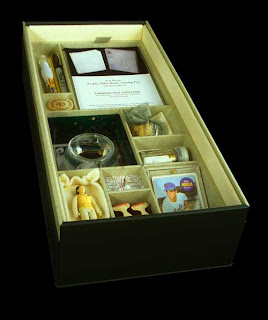
His "Tense Operator has been set to Present-Indefinite."
Wherein we assume we are having a conversation with one another. We being the members of ENGL 5650. Do the voices that return to us come from other human beings via these prosthetics we call computers, or do they come from some unknown artificial intelligence? Then again, are "we" really possessed of organic intelligence, or is it merely a simulation of intelligence that we present in order to obscure the fact that there is no "real" intelligence?





So Why I consider Bervin's Emily project to be OK.
Bervin takes aspects of Dickinson's writing that are traditionally erased and makes them material, exposing to the air some of what attempts to normalize had locked away. I believe this project is important both in regards to other artists' books projects utilizing Dickinson's poems as well as Bervin's Desert and her other works that feature erasure.

Lost in the West Edmonton Mall
Charles Bernstein
“You Never Looked So Simulating,” a poem presented at the In(ter)ventions conference in Banff, February 2010, and first published in West Coast LINE.
Charles Bernstein is a poet, theorist, editor and literary scholar, and he teaches at the University of Pennsylvania. His most recent collection of poetry is All the Whiskey in Heaven, published by Farrar, Straus and Giroux in 2010 . Read his previous work in Geist at geist.com